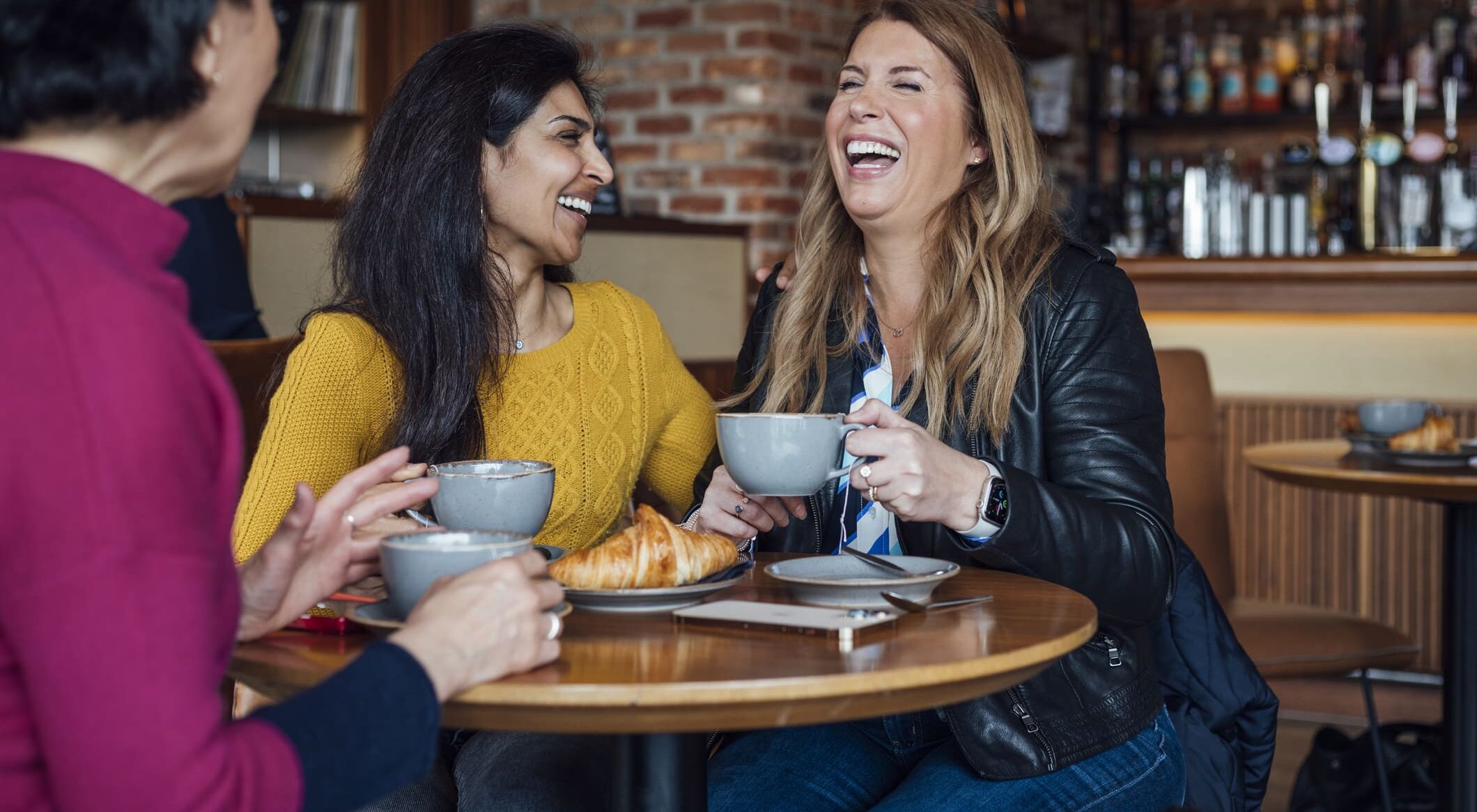How Female Friendships Positively Impact Your Life

Prolonging your life and providing much-needed support after a death... that’s female friendships for you.
By Jennifer G. McKechnie, MSW, RSW, Psychotherapist
Outside of my own family, my longest relationship – with human or beast (I’m lucky to have some very old pets) – is with my best friend. I’m not sure what her recollection is, but I believe our friendship blossomed over a group project on the Victorian Era in a grade 12 English class.
If this is in fact the case, our first photo together found us both wearing long dresses, looking like we lived in a time when John A. MacDonald was Prime Minister. Many other snapshots would follow in the years to come: graduations, karaoke (lots of karaoke), travel, break-ups (more of a metaphorical snapshot here, because a real one would just be cruel), weddings, baby, and so on. Through thick and thin, this person has been my person despite not being, geographically speaking, very close.
So, what is the significance of my foray into the Victorian era (and the friendship that arose as a result) have to do with anything?
Well, in honour of International Women’s Day, this article is dedicated to the significance of a beautiful thing: the female friendship.
Female friendships and positive health outcomes
Female friendships have been connected to many outcomes: improved mental and physical health, a prolonged lifespan, and sometimes questionable fashion choices (depending on the decade: see Victorian dress wearing above). However, let’s leave the fashion choices behind and focus on the important stuff: health and well-being.
In 1976, Harvard Medical School ran the Nurses’ Health Study to explore risk factors for chronic health issues affecting women. This study has resulted in numerous findings over the decades it has been running, including the following on female friendships:
- the more friends a woman has, the fewer mobility related issues she would experience as she grows older (think of the woman in the retirement commercial playing tennis without knee pain!)
- women with many friends were also found to enjoy their lives more and experience higher overall satisfaction
But the benefits of female friendships don’t stop there. Another study, this time completed at UCLA, spoke to the benefit of women coming together in times of stress. This study suggests that:
- in addition to the common physiological impacts of stress, such as the production of the stress hormones (cortisol and adrenaline), women also produce oxytocin (sometimes referred to as the ‘nurturing hormone’)
- in combination with other hormones, like estrogen, during times of stress this mix of hormones can result in women seeking out other women and children in the way of “tending and befriending” — as a means of increasing overall safety and well-being, and thereby, reducing distress
What this means for me, and countless others, is that the next time my husband asks me if I spilled my guts to my best friend about his grumpy behaviour (and my opinion on it), I can say, “Yes. Science made me do it.”
But, let’s be serious for a moment.
Think about the bigger picture of life in connection to these pieces of information. Life can be challenging, and sometimes downright hard. We go through so many events: births, deaths, suffering, failures, periods of contentment, losses, stagnation, and growth – all connected to a spectrum of emotions.
Walking these roads without a confidant or group of confidants would be difficult. And lonely. For those of us in romantic relationships, we often look to our partner to provide connection and companionship. Sometimes they can. Other times, we may miss the sense of commonality and connection we can receive from other women.
Regardless, what happens if the stress or trauma that we women are trying to cope with is the actual loss of our partner through death or the ending of the relationship?
This is, once again, where the importance of female friendships comes in. Having a female friend, or group of gal pals, with whom to share thoughts, feelings, vulnerabilities, and grief, can be profoundly beneficial to a woman’s well-being as they navigate the loss of a spouse.
Consider the effect then of the loss of a partner and the tremendous stress that this can cause. Life for a grieving spouse has drastically changed, which can leave them feeling disconnected from their sense of reality.
But lucky for women, many of us can relate to having a friend who keeps us anchored: who has a way of telling it as it is, supporting us when we need it most, holding us up when we might feel like everything around us is crumbling down, or allowing us to crumble for a time, and keeping us company as we do. Even research has shown that we manage stress better when in connection with other women (see UCLA study above!).
If you are reading this now and view yourself as someone who hasn’t maintained strong connections with other women over the years, don’t despair. See this instead as an opportunity – especially in this month of celebrating women – to reach out and connect. Many communities hold events to celebrate International Women’s Day. Consider attending one as a step towards broadening your community of female friends. It could prolong and enrich your life!
Happy IWD!
About the Author
Jennifer G. McKechnie is a trauma therapist working with both children and adults. Jennifer utilizes interventions such as Eye Movement Desensitization and Reprocessing (EMDR), Sensorimotor Psychotherapy, as well as Polyvagal Theory in her work. She values ongoing learning as a key part of maintaining and growing her practice. When away from the office, Jennifer incorporates self-regulation techniques into her day by connecting with nature through running, as well as spending time with her partner and pets.





